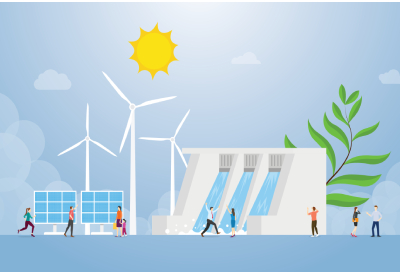A Resilient Recovery: An Open Letter from Canada’s Clean Energy sector

June 24, 2020
As the conversation in Canada shifts from immediate relief to economic recovery, new questions will arise: what does recovery look like, and how do we design stimulus that delivers secure jobs in a cleaner, innovative and diverse economy?
Done right, the federal government’s stimulus and recovery efforts can create jobs, spur cleantech innovation, encourage economic diversification, cut both carbon pollution and illness-causing air pollution, and ultimately make Canada a more resilient country.
On Friday, April 3, industry and non-profit leaders representing Canada’s clean energy sector—including renewable power, energy efficiency, cleantech, advanced biofuels and electric transportation—submitted an open letter to Prime Minister Trudeau on the need for clean-energy-focused stimulus in order to build a better, more resilient economy.
The open letter emphasizes three overarching recommendations:
- To signal climate policy continuity and enhancement.
- To invest in sufficient, sustained and sustainable stimulus.
- And to move quickly to support clean energy solutions, Canadian cleantech innovation and businesses by expanding existing initiatives and programs.
In particular, the letter says, “investment in economic diversification must place special attention on the regions that need it most and that have seen record layoffs.”
The clean energy sector employs 298,000 Canadians in a wide range of jobs: insulating homes, developing clean technologies, manufacturing electric vehicles, building and maintaining wind, solar and hydro projects, producing renewable fuels—these are just a few examples. Independent modelling has found that, by 2030, Canada’s clean energy sector will employ 559,400 Canadians, thanks in part to climate policies and programs spurring a clean energy growth rate four times the Canadian average.
The energy transition is also enhancing competitiveness and creating new opportunities in other sectors of the economy. These include jobs in low-carbon concrete, steel and aluminum, sustainably produced mass timber, and mining the metals and minerals used in many clean technologies.
In short, a clean recovery creates winners across the country and across the economy.









![Guide to the Canadian Electrical Code, Part 1[i], 26th Edition– A Road Map: Section 56](https://electricalindustry.ca/wp-content/uploads/2022/11/Guide-CE-Code-2.png)






